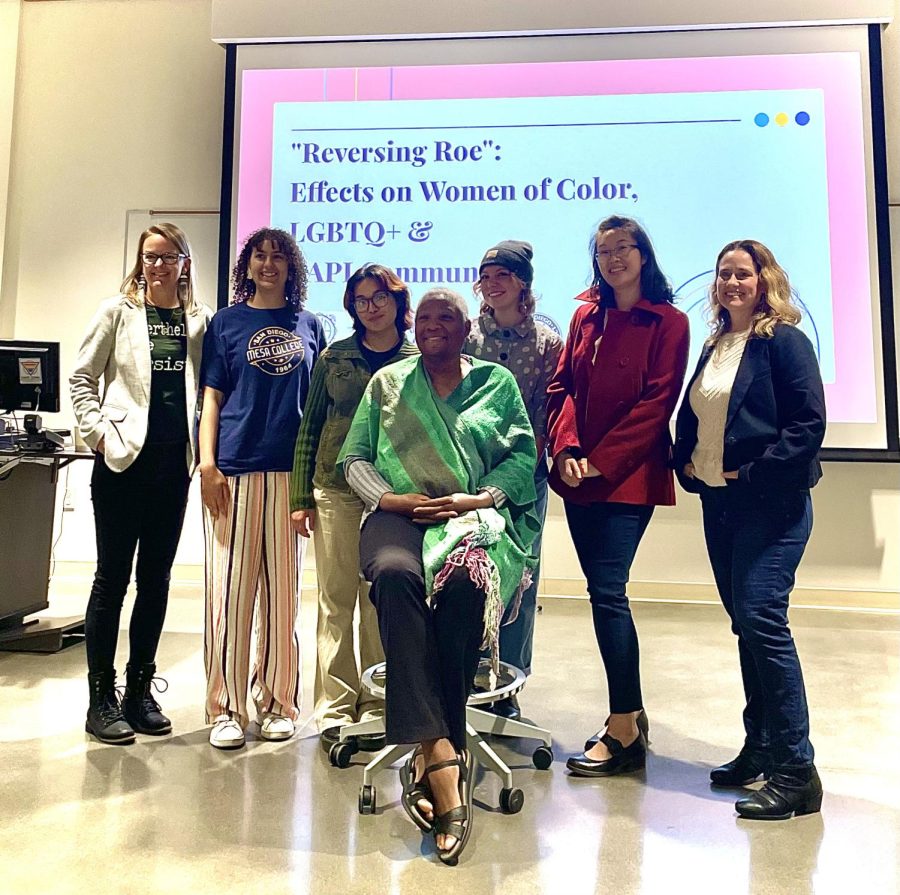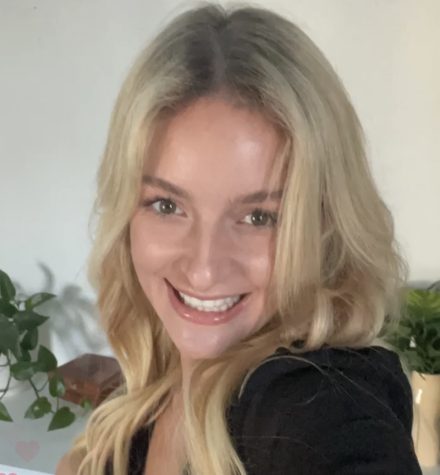With students, professors and experts in attendance, the Women’s Alliance Club at Mesa College hosted a live viewing and discussion of Ricki Stern’s 2018 documentary “Reversing Roe”.
The film depicts the longstanding battle between “pro-choice” and “pro-life” camps of the abortion issue, and how Supreme Court legislation on the procedure has evolved in the last century.
1973 brought good news for the abortion rights movement with the landmark ruling of Roe v. Wade, which deemed all abortions in the first trimester, and some in the second trimester, a constitutional right via the 14th Amendment. The historic case federally decriminalized abortion and prohibited states from enacting their own laws around abortion care.
After Roe v. Wade, several Supreme Court cases took place to determine whether the ruling was ethical and constitutional. “Reversing Roe” detailed numerous Supreme Court cases in which “pro-life” advocates sought to minimize the amount of abortions performed by enacting more restrictions. One such case was Planned Parenthood v. Casey, which ruled in 1992 that, while states could not ban the procedure altogether, they could determine their own conditions under which abortions could be legally performed.
A number of states would enact stricter abortion laws following the Planned Parenthood v. Casey verdict. Perhaps most notably was Pennsylvania, with their 1989 Abortion Control Act. This act implemented a 24-hour waiting period between a mother’s viewing of their sonogram and their actual abortion It also required abortionists to notify the woman’s husband, making him aware of her intention to abort the pregnancy.
In spite of being released four years prior to the overruling of Roe v. Wade, “Reversing Roe” foreshadows the eventual verdict. The film illustrates how anti-abortion laws have been passed incrementally, suggesting that the reversal of Roe was inevitable.
At the end of the viewing, leaders from the Women’s Alliance Club encouraged audience members to talk amongst themselves about aspects of the film that resonated with them. The room teemed with discussion, each contributing member offering their unique perspective – but the audience seemed to be unanimously “pro-choice”. Some members had experience providing abortion care; others had aborted pregnancies themselves.
The greater audience reconvened, directing their attention to expert panelists in attendance who weighed in.
Dr. Carolle Jean-Murat, a board-certified OB-GYN from Haiti. She shared stories of abortions she had performed and the profound effect that each one had on her. Eyes of attendees widened in shock, for instance, as she told of a nine-year-old girl who needed an abortion after being raped by her father. She stressed the importance of preventative birth control, stating that she is “‘pro-choice’, not pro-abortion”.
Jean-Murat recounted the day she first learned of the overturning of Roe, and the hopeless feeling that enraptured her. “It is not hopeless, though,” she said, “because we have the power to vote.” She remarked on the increase of young voters in recent elections, and how this trend will be a driving force for social change.
Taking the floor next was Gloria Kim, professor of Women’s History, who also serves on the Women’s Studies Advisory Committee. She cited Griswold v. Connecticut, which was presented to the Supreme Court in 1965 to determine the constitutionality of Connecticut legislature that banned contraceptives. Ultimately, the Court decided that outlawing contraceptives was a violation of the Constitutional right to privacy.
Eight years later, Roe v. Wade deemed abortion access a right to privacy under the Griswold precedent. “But the problem with Griswold,” said Kim, “is the word ‘privacy’ doesn’t show up in the Constitution. They are inferring it.”
Since privacy rights are not explicitly protected under the Constitution, some argued that the Griswold verdict was unconstitutional. Under this school of thought, Roe v. Wade would also be unconstitutional, being constructed on the Griswold precedent. This argument was the determining factor in the ruling of Dobbs v. Jackson in 2022, which overturned Roe v. Wade.
The panel concluded with a brief thanks from co-presidents of the Women’s Alliance Club, Mona Alamar and Tessa Smith, as well as their treasurer, Madison Verba. The club is open to new members, and are available for contact via their Instagram @womensalliancemesa, or email womensalliance2@gmail.com.




